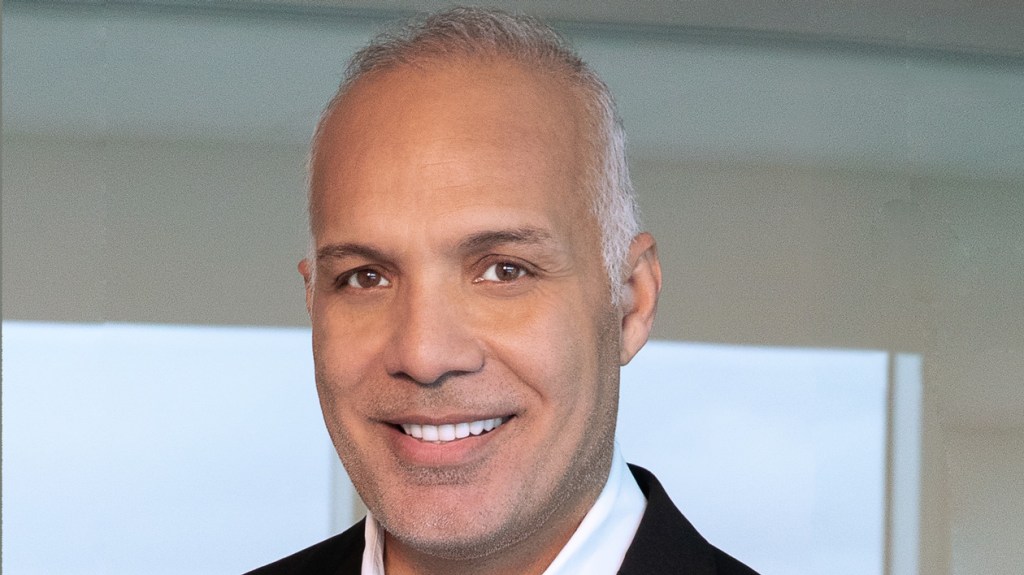Business News
Page: 39

South by Southwest has announced new keynotes and its latest round of featured speakers for its 39th edition, taking place March 7-15 across Austin.
Newly announced keynotes include Issa Rae, the creative force behind HBO’s Insecure; Meredith Whittaker, president of Signal; and Ben Lamm, CEO of Colossal Biosciences, who’ll be joined by actor Joe Manganiello to discuss advancements in… cloning. They join previously announced keynotes such as Creedence Clearwater Revival icon John Fogerty, Bluesky CEO Jay Graber, and IBM chairman and CEO Arvind Krishna.
The featured speakers lineup includes the cast and creators of HBO’s The Last of Us, game designer Hideo Kojima, Rivian CEO RJ Scaringe, comedian and podcaster Conan O’Brien, actor and musician Kevin Bacon, and Something Corporate singer-songwriter Andrew McMahon. Additional speakers include comedian Taylor Tomlinson food critic Keith Lee and social health expert Kasley Killam.
Trending on Billboard
This new slate of speakers complements SXSW’s rounds of announcements, which included Donald Passman, Ghazi, Dr. Peter Attia, Johanna Faries, Douglas Rushkoff, and more.
Highlighted sessions include “Colossal: Technology Company Turning Science Fiction to Science Fact,” where Lamm and Manganiello will explore advancements in gene editing and cloning. “A Conversation with Issa Rae” will cover her career and media company, HOORAE, while “A Conversation About Online Security and Confidentiality” will see Whittaker discussing privacy with Guy Kawasaki. Other panels include “Balloonerism – A Film Based on the Album by Mac Miller,” a discussion on a new film inspired by the late artist’s work, and “Breaking Barriers by Turning Prisoners into Firefighters,” focusing on rehabilitation through firefighting programs.
Entertainment-focused chats will include “Fans Over Fees,” where McMahon will address ticket scalping and fair access to live events; “Claiming the Future of Entertainment,” where O’Brien and gaming exec Johanna Faries will discuss gaming’s influence on media; and “DEATH STRANDING 2: ON THE BEACH,” where Kojima will reveal details about the video game.
Other notable discussions include “Fireside with Arm CEO Rene Haas,” covering AI’s impact on technology, and “Funny AF Comedy Showrunners,” where Universal Television’s top creators will share insights into comedy production. Business-oriented panels include “How America’s 33M Small Businesses Can Grow and Prosper,” featuring Mark Cuban; and “How Technology Is Transforming Urban Spaces,” examining AI’s role in city infrastructure.
Additional sessions will feature discussions on AI in media with Paramount CTO Phil Wiser, immersive storytelling with ILM Immersive, and influencer entrepreneurship with Keith Lee and Jennifer Quigley-Jones.
“Every year, SXSW assembles a group of speakers who are doing extraordinary and often surprising things, such as breaking boundaries in storytelling and representation, advocating for secure communication, and bringing back the woolly mammoth,” said Hugh Forrest, president and chief programming officer of SXSW. “Issa Rae, Meredith Whittaker, Ben Lamm, and Joe Manganiello make up a stellar group of changemakers who are a perfect fit for the SXSW community.”
SXSW will take place from March 7-15 in Austin, Texas, with full details regarding their newly-announced speakers and sessions available via their website.
Ronald Day, president of entertainment and chief content officer at NBCUniversal Telemundo Enterprises, is stepping down from his position, the company announced. His departure, scheduled for this Thursday (Feb. 13), follows a recent contract renewal and comes at a time when Telemundo is experiencing unprecedented success in the ratings.
Day’s resignation coincides with Telemundo’s remarkable achievement of leading the prime time slot among Spanish-language networks in the U.S., sparking industry speculation about the timing and reasons behind this decision. “Today, at the peak of this great success, I am making another equally significant decision,” Day, who has been at the helm of the company for seven years, also announced on social media on Monday (Feb. 10).
In his post on Instagram, Day revealed his future plans, which include writing a book and embarking on a speaking tour across universities in the U.S., Latin America, and Spain. “[It] will bring me closer to my purpose: to inspire and train a new generation of executives and entrepreneurs ready to transform history, just as I can proudly say I did as I close this cycle,” he wrote.
Trending on Billboard
Day added, “Thanks to a brilliant team of creatives and leaders that I hold close to my heart, and to a Hispanic audience that has been key in my career as an immigrant in the U.S.”
Since joining Telemundo in 2018, Day has been instrumental in defining the network’s content direction. “A media executive with more than three decades of experience in Hispanic entertainment, he led the development and production of multiple seasons of our successful reality shows La Casa de los Famosos, Los 50, Exatlón, and Top Chef VIP, as well as our highly rated live specials including the Billboard Latin Music Awards and Miss Universe,” Luis Fernández, chairman of NBCUniversal Telemundo Enterprises, said in a statement shared with Billboard. “Most recently, he helped me reorganize Telemundo Studios and position them for future growth under Javier Pons leadership.”
Last June, Day was Billboard Español‘s executive of the month. In its second annual edition, Billboard‘s Latin Women in Music 2024 significantly boosted its viewership on Telemundo, shattering previous records. The event witnessed a staggering 541% increase in audience interactions across TV, digital platforms, Peacock, and social media compared to the 2023 show. The gala, which honored stars such as Karol G and Gloria Estefan, not only attracted 109.6 million minutes of video views — a 20% increase from 2023 — but also dominated its prime time slot, outperforming Univision by significant margins in key demographic groups.
Read his full Instagram statement here.
It’s an early evening in late September, and San Francisco is gleaming. The back patio at EMPIRE’s recording studios near the city’s Mission District is all white marble, reflecting the last rays of the setting sun as dozens of YouTube executives mill about, holding mixed drinks and picking at passed trays of beef skewers, falafel, […]
Spotify led all music stocks this week with a 13.6% gain after its fourth-quarter earnings results on Tuesday (Feb. 4) showed that the company posted its first-ever net profit. The streamer’s share price reached an all-time high of $632.41 on Friday (Feb. 7) before closing at $622.99, slightly lower than its closing prices on Wednesday ($626.00) and Thursday ($625.87). Fewer than six weeks into 2025, the Swedish streaming company’s stock has risen 39.3%.
With 203.8 million shares outstanding, according to its 2024 annual report released this week, Spotify’s market capitalization briefly reached $128.9 billion. A week ago, Spotify was worth nearly as much as the three major music groups. As of Friday, after gaining another 13.6%, Spotify is worth more than Universal Music Group (UMG), Sony Music and Warner Music Group (WMG) combined.
Trending on Billboard
Guggenheim was among a host of analysts to increase its Spotify price target, raising the streaming company’s shares to $675 from $520 and increasing its forecast for 2025 operating income to 2.61 billion euros ($2.7 billion) from 2.46 billion euros ($2.54 billion). Others that raised their price targets for Spotify were Evercore ISI (to $700 from $500), Morgan Stanley (to $670 from $550), DA Davidson (to $680 from $350) and Deutsche Bank (to $700 from $550).
Led by Spotify, the 20-company Billboard Global Music Index (BGMI) rose 7.7% to a record 2,635.41, bringing its year-to-date gain to 24.0%. The index’s most valuable companies were among the 13 gainers while the seven companies that lost ground have relatively small market capitalizations. In contrast to music stocks’ gains, major indexes were muted this week. In the U.S., the Nasdaq composite index and S&P 500 fell 0.5% and 0.2%, respectively. In the U.K., the FTSE 100 rose 0.3%. South Korea’s KOSPI composite index gained 3.0%. China’s SSE Composite Index was up 1.6%.
Chinese music streamer Cloud Music had the week’s second-best performance, rising 6.6% to 130.30 HKD ($16.73). SiriusXM was third-best after rising 6.0% to $25.44. Another Chinese music streaming company, Tencent Music Entertainment, improved 4.7% to $12.54. And K-pop companies all fared well: SM Entertainment was up 4.9%, HYBE improved 4.2% and JYP Entertainment rose 3.6%.
While record labels and publishers have benefitted from Spotify’s price increases, their stock prices haven’t followed the same trajectory. WMG gained 2.9% to $32.72 following its quarterly earnings report on Thursday (Feb. 6) and is up 5.5% year to date. Reservoir Media, which released earnings on Wednesday (Feb. 5) and raised its full-year guidance, closed the week down 4.2% to $7.96 and has lost 12.0% in 2025. UMG, which will announce its fourth-quarter earnings on March 6, rose 0.1% to $26.98 and is up 9.1% year-to-date.
MSG Entertainment gained 1.1% to $36.73. On Thursday (Feb. 6), the concert promoter reported that revenue increased 1% to $407.4 million and adjusted operating income improved 2% to $164 million in the fiscal second quarter ended December 31, 2024. Event-related revenue fell $22.5 million due to lower revenue from concerts and a drop in other live entertainment at the company’s venues.
LiveOne had the largest decline of the week, falling 19.3% to $1.17. The music streaming company will announce earnings on Feb. 14.
This might have been the year that both The Beatles and The Rolling Stones won Grammy Awards, but older demographics who watched the show are wondering why rock music had such a low profile during the televised ceremony.
Sure, rock music had a token presence during the telecast: The show began with an uplifting performance from Dawes covering Randy Newman’s “I Love L.A.,” backed by an all-star band consisting of Brad Paisley, John Legend, Sheryl Crow, Brittany Howard and St. Vincent as a tribute to the people of Los Angeles who are still trying to recover from the devastating wildfires in January. Also, the Red Hot Chili Peppers’ Anthony Kiedis and Chad Smith presented the best pop vocal album Grammy to Sabrina Carpenter for Short n’ Sweet, while the alternative band Khruangbin played a very abbreviated segment of their shoe-gazing song “May Ninth”; and Coldplay’s Chris Martin played a ballad during the In Memoriam section.
But the awards for best rock album, best metal performance and best alternative music album, among others, were relegated to the non-televised afternoon Grammy Award presentation.
Trending on Billboard
Why weren’t there any artists from that genre rocking out during the telecast? After all, rock music still dominates the live show marketplace. And while there are many ways that various genres can be measured against one another, Luminate’s audio consumption album units genre report shows rock music is still the second biggest genre at 22.3%, Billboard calculates, when unassigned albums are deducted from the total. That’s almost two and a half times as large as Latin, which has an 8.3% market share; and slightly more than twice as large as country, which has a 10.4% market share.
In album units, rock is 50% larger than pop music, which has a 14.8% market share, but pop was featured prominently during the show. As was R&B/hip-hop, which is still the biggest genre at a 27.8% market share.
But even though rock may have a big presence collectively, it also has some missing ingredients that probably make it difficult to include it in the televised Grammy Awards these days.
Age is a factor — not only the demographics of the Grammy show viewers, which undoubtedly plays a role in what artists and music are featured on the TV broadcast, but the age of the rock music that makes up those market share numbers. Luminate tracks releases in two age brackets: current, which counts all sales and streaming activity in the first 18 months after a song or album is released; and catalog, which counts everything older than 18 months.
That is one of rock’s biggest issues: By the catalog category — again using audio consumption units minus activity from titles unassigned to a genre — its 25.5% of the market is comfortably No. 2 in the industry, still behind R&B/hip-hop. But by current releases, rock slips all the way to fourth, at 11.9%, behind R&B/hip-hop (27.2%), pop (18.7%) and country (14.8%) and barely ahead of Latin (10.6%).
And the Grammy Awards are all about current music; in fact, current music is literally written into the eligibility criteria of which music releases can be considered for its awards. For the 2025 Grammys, the Recording Academy only considered recordings released from Sept. 16, 2023, to Aug. 20, 2024. Mathematically speaking, all the releases that meet that criteria to be eligible for a Grammy Award, and thus to be included in the show, would be current releases.
But there could be another, more significant factor as to why rock music wasn’t front and center during the televised portion: The sales and streams for the nominees in the rock categories paled in comparison to those of other genres. Big sales and streaming activity clearly indicate widespread popularity and TV shows are all about drawing big viewing audiences. And the nominees in the rock categories turned in the weakest collective performance when it came to sales and streaming activity among the genres highlighted on the show.
Of the albums nominated for album of the year, only Billie Eilish’s Hit Me Hard and Soft could be remotely considered rock — and alternative at that, or more accurately dark pop. The other albums, not so much: Taylor Swift’s The Tortured Poets Department, Chappell Roan’s The Rise and Fall of A Midwest Princess and Carpenter’s Short n’ Sweet got pop covered; Charli XCX’s Brat represents electro-pop; and Andre 3000’s New Blue Sun and Jacob Collier’s Djesse Vol. 4 are R&B and jazz, with smatterings of funk thrown in. In fact, Beyoncé’s country album, Cowboy Carter, has been cited for bringing other genres into the mix.
Collectively, the eight albums nominated for album of the year averaged 2.043 million album consumption units in 2024, even with the Andre 3000 album only hitting 44,000 units and the Collier album lower, at 33,000 units.
Sales and streaming activity was also a likely distinguishing factor in determining if the big awards of the Latin, pop, country and R&B genres were featured on the televised show. Let’s take best pop vocal album, with the Grammy nod going to Carpenter’s Sweet album, which garnered 2.504 million U.S. album consumption units. Collectively, the five nominees in that category averaged 3.01 million album consumption units, with Swift’s Tortured Poets leading the way with 6.962 million.
In best rap album, Doechii’s Alligator Bites Never Heal won the Grammy, despite having the second-lowest sales/activity of the nominees at 133,000 album consumption units. Collectively, the five nominated albums averaged 712,000 units, led by Future & Metro Boomin’s We Don’t Trust You at 2.046 million units and Eminem’s The Death Of Slim Shady (Coup De Grace) at 1.01 million album consumption units.
In best country album, the Grammy nominees collectively averaged 856,000 album consumption units, with a pair of artists new to the genre leading the way in Post Malone’s F-1 Trillion, with 1.598 million units, and winner Cowboy Carter, with 1.42 million album consumption units.
Shakira, who performed and was acknowledged for her historic role in bringing Latin music to the masses, won best Latin pop album with her Las Mujeres Ya No Lloran album, which had 306,000 album consumption units. Collectively, her activity combined with the other four nominees for best Latin pop album averaged 171,000 album consumption units.
Even dance/electronic music, which ranks sixth with 3.8% in U.S. market share as calculated by Billboard based on Luminate data, made the cut for the televised portion of the show. While its overall market share is meager compared to rock, its collective current album consumption units were bolstered by Charli XCXs Brat album, which garnered 1.159 million album consumption units. In total, the five nominees in the category earned a collective average of 273,000 units.
Rock, in comparison, is a different story. The Rolling Stones won the best rock album award with 91,000 album consumption units for its Hackney Diamonds, while Green Day, which was the category leader, had 158,000 units. Collectively, the rock category nominees averaged just 81,000 units, by far the smallest of the bigger genres.
There may be plenty of reasons why rock was relegated to the back burner at this year’s Grammy Awards — the Stones and the Beatles, after all, are not the hottest names with kids these days. But the numbers certainly tell at least part of that story.
Canadians loomed large at Sunday’s Grammy Awards — even some who weren’t actually there in person — heading into it with many nominations for songwriting and producing.
The Weeknd’s surprise performance, ending his Grammys boycott, was probably the most notable, though Kendrick Lamar’s multiple wins for “Not Like Us” — accepted in a Canadian tuxedo, no less — made Drake a major talking point.
The most-decorated Grammy-winner of all time finally scored her white whale. Beyoncé, who holds 35 wins and 99 career nominations, had been denied album of the year four times before, losing to Taylor Swift in 2010, Beck in 2015, Adele in 2020 and Harry Styles in 2023. Each of those losses was for a culture-shaking album, from I Am…Sasha Fierce to her self-titled record, to Lemonade and Renaissance.
Trending on Billboard
This year, Beyoncé took home album of the year for her country record Cowboy Carter, also winning best country album. It was a historic win for Billboard’s greatest pop star of the 21st century, recognizing her for an album that honours the contributions of Black musicians to country as well as blurring the lines between country, pop, dance and R&B. (Not to mention, she seemed genuinely surprised by the country album win, in a reaction that has already been meme’d — a rare moment of fluster from Queen Bey).
Cowboy featured some major Canadian contributions — songwriting team Nate Ferraro, Bulow and Lowell (who also won the inaugural Billboard Canada Non-Performing Songwriter Award) wrote the album’s lead single “Texas Hold ‘Em” while Dave Hamelin of The Stills co-wrote and produced a half-dozen songs. For his work, Hamelin will also receive an album of the year Grammy.
Another Canadian songwriter did well in a different category — Toronto’s Scott Zhang picked up a win in best R&B song for his work on SZA’s “Saturn.” Conductor Yannick Nézet-Séguin was the other big Canadian winner of the night, taking home best compilation soundtrack for his work on Bradley Cooper’s Maestro.
Canadian singer and Broadway star Deborah Cox helped kick off the Premiere Ceremony, which takes place before the evening Grammy Awards. That ceremony is where the majority of awards are handed out, and Cox was nominated this year as part of the cast of Broadway musical The Wiz, up for best musical theater album.
Though the cast of Alicia Keys’ Hell’s Kitchen took home the award — Keys was also honoured during the evening ceremony with the Dr. Dre Global Impact Grammy — Cox and her Wiz co-star Wayne Brady opened up the Premiere Ceremony with a heartfelt rendition of “Bridge Over Troubled Water.”
Read all of Canada’s impact on the awards here. – Rosie Long Decter
≈
Charlotte Cardin Scores A New ‘Feel Good’ Hit On The Billboard Canadian Hot 100
Canadian pop singer Charlotte Cardin can feel good this week.
The Quebec star has a new entry on the Billboard Canadian Hot 100, with her 2023 single “Feel Good” arriving at No. 94 on the chart dated Feb. 8, 2025.
It marks her first new entry on the chart since last year’s “99 Nights” — and like that track, “Feel Good” enters well after it was initially released, making its chart debut a year and a half after it appeared on her 2023 EP Une semaine à Paris.
The song is a mellow dance-pop track in a similar vein to her top ten hit “Confetti,” but where that one was driven by party malaise, “Feel Good” finds thrills in pleasure.
With lyrics in both French and English, the song has taken on a new life throughout her international tours and with a global, especially French-speaking, audience on TikTok and other social media platforms.
The new chart entry gives Cardin some good momentum as 2025 kicks off, and the Canadian singer — and Billboard Canada inaugural Woman of the Year — continues to expand her reach globally.
Read more on this week’s chart here. – RLD
≈
Executive Turntable: UMG announced a major move at the top of its Canadian office on Friday (Feb. 7), with Julie Adam succeeding longtime CEO Jeffrey Remedios in the top leadership role. Full story from Billboard Canada here.
≈
Remembering Artist Manager/Musician Jane McGarrigle
(Laury) Jane McGarrigle, a Canadian songwriter, musician, music publisher, artist manager and author who worked extensively with her sisters, folk legends Kate & Anna McGarrigle, died on Jan. 24 of ovarian cancer. She was 84.
Jane McGarrigle managed her younger sisters’ music careers from the late 1970s to the mid-1990s. As well as co-writing some songs with the duo, she performed with them in the studio and on tours of Canada, the United States, Europe and Australia.
In 2015, Anna and Jane McGarrigle co-wrote Mountain City Girls, a book detailing their Quebec upbringing. Commenting on the book (published by Penguin Random House), Emmylou Harris, a longtime friend of the McGarrigle clan, wrote that “From the moment I met The Mountain City Girls, Kate, Anna and Jane, I wanted to be a part of that magical McGarrigle circle — the songs, the suppers, the families and fellow travellers, and they blessed me with it all.”
Jane McGarrigle was long active in music publishing and copyright advocacy. She served as a board member of the Society of Composers, Authors and Music Publishers of Canada (SOCAN) where she defended publishing rights for musical authors. She also served on the board of the Songwriters Association of Canada for a number of years.
McGarrigle and her family spent long periods of time living in California, and she often performed with local musicians, including s Dick Oxtot’s Golden Age Jazz Band. In recent years in Montreal, she played dobro and piano with her partner Peter Weldon in their band, The What Four. – Kerry Doole
Last Week: Live Industry Faces Venue Shortages Despite $10B Economic Impact
Drop the needle on the latest Executive Turntable, Billboard’s weekly compendium of promotions, hirings, exits and firings — and all things in between — across the music business.
There’s a solid slate of personnel news this week, which in the last 24 hours has been awash with big moves from Universal Music Group (see ICYMI down there, eh). When you’re done picking your jaw up off the floor, peruse our annual list of the industry’s biggest power players, our weekly interview series spotlighting a single c-suiter and our calendar of notable industry events.
Clay Hunnicutt departed his role as executive vp of label operations at Big Machine Label Group. Hunnicutt joined BMLG in 2019 as GM of the Big Machine Records imprint and was promoted to his most recent assignment, focusing on business development, partnerships and catalog initiatives across the BMLG family of labels, in January 2024. Prior to BMLG, he spent four years leading Big Loud Records, where he shepherded a team developing Morgan Wallen. Before joining label life, Hunnicutt spent 27 years in radio, including long stretches at Clear Channel and iHeartMedia, where he rose to executive vp and GM of national programming platforms. Hunnicutt, who made Billboard’s Country Power Players list in 2023, broke the news of his departure with Country Aircheck, telling them that “moving on is always bittersweet.” The industry veteran has not announced where he’ll land next.
Trending on Billboard
Atlantic Music Group named Alex Figueroa (aka “Figs“) as vice president of creative, where he’ll work alongside president of creative Dave Rocco to expand the label’s artistic reach and vision. Figs will collaborate with artists across Atlantic, 10K Projects and 300 Entertainment, integrating creative, content, and digital strategy to strengthen artist branding. Previously, Figs served as head of content and head of creative at 10K Projects, where he played a key role in the success of Artemas’ global hit “I Like the Way You Kiss Me” and helped secure Teezo Touchdown’s feature on BETWEEN FRIENDS’ “Redlight.” He also signed influential artists like Aminé, who scored a hit on the Hot 100 in 2016, with the No. 11-peaking “Caroline.” Expressing gratitude to his former team at 10K, he emphasized the importance of collaboration, stating, “Nothing great is ever built alone.”
Capitol Records hired Brian “Busy” Dackowski as executive vp and head of pop/rock digital marketing for the storied label. Based out of Capitol headquarters in Los Angeles, he will lead digital marketing strategies for the label’s pop and rock releases. Busy joins from Atlantic Records, where he spent over 20 years, most recently as evp of viral marketing and analytics. He played a key role in launching Bruno Mars and Ed Sheeran and led successful campaigns for Fred again.., Charlie Puth, Ty Dolla $ign and others. He also oversaw digital marketing for the Barbie and Twisters soundtracks. Tom March, chairman and CEO of Capitol Music Group, praised Busy as one of the best music marketers globally. “Having him lead our digital marketing team is going to be a gamechanger for all the artists on our roster,” he said.
Tiara Hargrave // SLANG
Tiara Hargrave has been appointed general manager of SLANG, the nascent independent label under Influence Media. Hargrave will oversee operations and lead the Blackrock-backed label’s growth following a busy half-year since launching with rapper and Oscar winner Will Smith as its first signee. Since her appointment, SLANG has helped Smith snag his first No. 1 Gospel song, “You Can Make It,” and guided rapper Truththebull’s “Hype Me Up” to viral status. Previously, she was evp and GM at Alamo Records, working with artists like Lil Nas X, Lil Durk and Kid Cudi. The Baltimore native has also held key roles at Columbia Records, Universal Music Group and Red Bull. Based in New York, Hargrave will oversee a diverse roster that also includes multi-platinum producer Camper, GRAMMY-winning producer 30 Roc, rapper/singer Leaf, The Underachievers, Isaia Huron and RY XP.
Sphere Entertainment appointed Glenn Derry as executive vp of MSG Ventures, where he’ll oversee tech-centered initiatives and support Sphere Studios and the overall Sphere platform. Reporting to chief executive Jim Dolan, he will be based at Sphere Studios in Burbank, Calif. Derry joins from AGBO, where he was president of production technology, and previously served as vp of visual effects at 20th Century Fox Studios. Earlier, he founded Technoprops, an R&D firm specializing in motion capture, and developed a groundbreaking head-mounted camera system, earning an Academy Technical Achievement Award. His work includes blockbuster films like Avatar, Rogue One: A Star Wars Story, and Avengers: Age of Ultron. Derry got his start in practical effects and puppetry before transitioning into visual effects and virtual production. Dolan highlighted Derry’s impact on the entertainment industry as a creative technologist, adding, “his expertise will be an asset to Sphere as we continue to build on this next generation entertainment medium and reinforce our position at the forefront of immersive experiences.”
Wise Music Group elevated Dirk Lange to managing director of UK Rights Companies, overseeing Chester Music, Novello and Co, Campbell Connelly and Sparta Florida. Lange will relocate from Hamburg to London in April, succeeding Wiebke Busch, who’ll transition to a part-time role in Berlin to support the company’s classical rights division. Lange has a strong background in A&R, artist management and synch, having worked with labels and publishers throughout his career. Since 2007, he has been with Wise Music’s Berlin-based Bosworth Music, serving as head of synch and later as European creative director for new talent. He has signed prominent writers like Ólafur Arnalds and David Sylvian. “Dirk has some of the best ears in the business,” said CEO Marcus Wise. “He’s already well known to many of the composers on our roster. I’m confident his move to London will deliver significant success locally in discovering new talent, identifying acquisitions, and managing our core classical and contemporary music activities in all genres.”
AEG Presents promoted four key members of its global touring staff. Jonathan Baden is now senior vp of production and direct support, overseeing touring and festival production teams. Jenny Heifetz has been elevated to senior vp of global touring, expanding her role in operations and select tours. Lindsay Dworman and Elizabeth Pickrel, formerly directors of touring, are now vps of global touring, with Dworman’s focus on booking and managing tours, and Pickrel’s plate now including international touring. “Our global touring team is only as good as the people in it and the artists we work with” said Rich Schaefer, president global touring at AEG Presents.
NASHVILLE NOTES: Reel Muzik Werks launched the Nashville-based publishing division 507 Publishing, which will be home to writers, artist and producers in the fields of country, pop, rock and Contemporary Christian. The 507 Publishing team will include Madison Policastri (who will lead the A&R department) and A&R coordinator/producer Cooper Carr … SOURCE Nashville, the nonprofit supporting professional women across Music City, set its officers: Kari Barnhart (Studio Bank) as president, Mallory Pascal (KBFM) as vice president, Kasey Cleckler (Cape & Anchor) as secretary, and Beth Tyson (FBMM) as treasurer.
The Country Music Hall of Fame and Museum’s Troubadour Advisory Council has announced its 2025 leadership team and new council members. Elizabeth Lombardi from CAA has been named chair, with Zach Farnum (117 Entertainment), Nina Jenkins Fisher (Jody Williams Songs) and Brenden Oliver (Country Music Association) as vice-chairs. The 2025 council members include Scott Adkins, Karli Berman, Christopher Beverly, Kasey Cleckler, Katie Cline Moore, Emily Dryburgh, Taylor Edwards, Alex Hall, Brittney Hitch, Cody Kirby, Nathan Pyle, Carter Robinson, Molly Shehan, Casey Thomas, Josh Tomlinson and Max Vanberg. –Jessica Nicholson
ICYMI:
Jeffrey Remedios
Bell Partners Worldwide acquired Gotee Records and Emack Music Publishing, launching Bell Partners Christian Music with Joey Elwood and Toby McKeehan in leadership roles … Julie Adam is the new CEO of Universal Music Canada, with Jeffrey Remedios shifting to REPUBLIC … After Cindy Mabe‘s sudden departure as CEO and chairman of Universal Music Group Nashville, UMG appointed Mike Harris as CEO and Dave Cobb as chief creative officer … Dina LaPolt launched content producer LaPolt Media. [Keep Reading]
Last Week’s Turntable: BMI Lifer Eyes Retirement
Universal Music Group announced on Friday (Feb. 7) that Julie Adam has been promoted to president and CEO of Universal Music Canada. She succeeds longtime chief Jeffrey Remedios, who has been named president of strategic development for REPUBLIC Collective, which includes Island, Def Jam, Mercury, and Republic Records. Both appointments are effective immediately.
Adam has served as executive vp and general manager of UMC since March 2023. In that role, she drove record-breaking success for UMG’s global and domestic artists in Canada, expanded e-commerce and direct-to-consumer initiatives, and strengthened brand partnerships. As CEO, she’ll lead the company’s overall strategy and operations. Before joining Universal, Adam spent nearly 24 years at Rogers Media. As president of news and entertainment, she led the strategy and oversaw the management and development of a portfolio of brands that spanned dozens of radio stations, podcast networks and TV channels.
“Julie is a generous, intuitive, and astute leader. Her impact since joining Universal has been transformative and can be felt industry wide: with artists, our team, and partners,” said Remedios. “Her passion and drive, coupled with her ability to laser-focus on results, all while ensuring the artist comes first, has propelled our roster to new heights. With Julie’s continued leadership, UMC is poised for the next phase of growth and evolution.”
Trending on Billboard
After a decade as chairman and CEO of UMC, Remedios will now lead high-priority growth initiatives for Republic’s labels, focusing on international A&R, Republic recording studios, brand expansion and more. He will work from both New York and Toronto, reporting to REPUBLIC Collective CEO Monte Lipman and COO Avery Lipman.
Jeffrey Remedios
Katherine Holland
During his time at UMC, Remedios redefined the company’s A&R strategy, dramatically boosting revenue for Canadian-signed artists. He also spearheaded the creation of UMC’s creative campus in downtown Toronto, establishing it as a hub for the broader music industry.
Reflecting on his tenure, Remedios stated deep pride in UMC’s evolution and appreciation for UMG leadership’s support. “I’ve dedicated my career to serving artists, and I’m incredibly proud of what we’ve built at Universal Music Canada,” he said, while also thanking Universal CEO Lucian Grainge and executive vp Michele Anthony for their mentorship. “The company I joined in 2015 and the one I leave in 2025 are vastly different—proof of our growth through creative innovation.”
“Jeffrey brings a wealth of experience as a leader and entrepreneur to the collective, said Monte Lipman. “In his new role, focused on exploring and capitalizing on opportunities in emerging areas of the industry, Jeffrey will play a critical role in scaling our business and proving new creative and commercial outlets for our artists.”
The leadership change in Toronto reflects similar actions taken by UMG approximately 700 miles south a day earlier. Following Cindy Mabe’s departure as CEO and chairman of Universal Music Group Nashville on Thursday, UMG announced the appointment of Mike Harris as CEO and producer and nine-time Grammy winner Dave Cobb as chief creative officer.
After Atlantic Records dropped Chappell Roan when “Pink Pony Club” didn’t take off in 2020, the singer struggled without healthcare and a “livable wage,” she said in her Best New Artist speech at the Grammy Awards Sunday night. “I told myself if I ever won a Grammy, and I got to stand up here in […]
Entertainment attorney Dina LaPolt is expanding her empire. The advocate and founder of LaPolt Law has announced the launch of LaPolt Media, which will focus on producing content that “inspires, informs and amplifies impactful voices while providing a platform for LaPolt’s unparalleled expertise and advocacy,” according to a press release.
“Launching LaPolt Media is about taking everything I’ve learned from fighting for creators, breaking down barriers, and rewriting the rules — and putting it into action in new ways,” said LaPolt in a statement. “Whether it’s a book, a podcast, or a bold idea, I want to empower people to own their story, seize their power, and make an impact.”
The company’s debut projects include LaPolt’s upcoming motivational book Street Smart: Succeeding in a Man’s World, to be released Oct. 7, and her new podcast, The Stiletto Room, which is set to launch this spring.
Trending on Billboard
LaPolt has tapped Samantha Gayle Bullock as chief media officer and executive producer of The Stiletto Room at LaPolt Media. Bullock has a background in both the music and entertainment industries encompassing IP development, artist and estate relations, content programming, global marketing and strategic media partnerships. She will oversee a team that includes The Press House, which will manage press campaigns, Crowd Surf, which will handle social media initiatives; and publishing and podcast distribution partners, all of which were handpicked by LaPolt.
Samantha Bullock
Alex Walk
“When I took Dina’s UCLA Music Business professional extension course 15 years ago — one that focused on the legal and practical aspects of the music business — I was already running my own indie rock marketing agency, but the experience was transformative,” said Bullock in a statement. “It was both a lesson in self-empowerment and a deep dive into how the entire music industry operates. To now have the opportunity to work alongside her is such a full-circle moment, and I’m thrilled to help bring her vision for LaPolt Media to life.”
Street Smart: Succeeding in a Man’s World, published by Burman Books Media, will distill decades of LaPolt’s hard-won wisdom into a playbook for navigating competitive industries. It will draw from LaPolt’s experiences building a powerhouse law firm from scratch and negotiating high-stakes deals. LaPolt will share insights on navigating negotiation, building confidence, defusing emotional triggers, sharpening instincts and turning even the toughest setbacks into stepping stones for success.
In The Stiletto Room podcast, LaPolt will sit down with “trailblazing creatives, disruptors and unapologetic originals” to discuss work, life, love, LGBTQ+ journeys, social justice and other topics. LaPolt Law describes the podcast as “combining the energy of Call Her Daddy with the insight of Mel Robbins.”
LaPolt Media is currently specific to the attorney’s projects, but the company intends to look at other projects going forward. Any additional projects will lean into advocacy.
LaPolt is celebrated for co-founding one of the nation’s most prominent songwriter advocacy groups, Songwriters of North America (SONA), which led to her work on the landmark 2018 Music Modernization Act and her efforts in championing creators’ rights. She has also worked on he Restoring Artistic Expressions (RAP) Act in the House and the Decriminalizing Artistic Expression Act, which is now law in California. She also advocated for the Ensuring Likeness Voice and Image Security (ELVIS) Act in Tennessee and is currently working on the passage of the No Fakes Act, currently pending in Congress, which would give every American a first-ever federal property right in their own voice and likeness, preventing non-consensual deep fakes.
Despite the new media venture, LaPolt maintains that her main focus will always be her law firm. “My law practice will always be my first passion and first priority,” LaPolt said, “but with the LaPolt Media team, I’m building a platform to amplify the voices and visions that deserve to be heard. No fluff, no nonsense — just unapologetic, unstoppable truth.”

 State Champ Radio
State Champ Radio 









